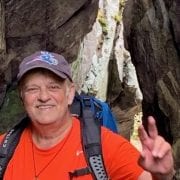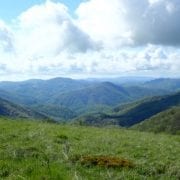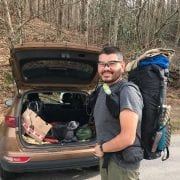“So God created humankind in God’s image, in the image of God he created them; male and female he created them.”
— Genesis [1:27]
IMAGO DEI
George was raised in a wealthy home and went to Harvard. Instead of studying economics or business, he pursued a path of social advocacy. He eventually graduated with a master’s in Social Work. From there, with his wife, he started an organization called Street Squash, a program that provided inner city youth with access to college. The sport of squash was used to add an advantageous credit for the young people when applying to college, but it was not the primary focus of Street Squash. The students were provided with a place to go after school and study. They had tutors and visited college campuses. The goal was to create access for a segment of our population that needed a head start. George could have been a great investment banker, but chose instead a life of helping.
From his kitchen table George built an organization that has sent thousands of youth to college. And he has helped in the establishment of fourteen other programs throughout the country. The graduation rate of students from these programs is substantially higher than national statistics. The youth from Street Squash achieve an almost 90 percent graduation rate. Without Street Squash, their chances were 15 percent. George only sees goals. He only sees that the youth are people. He knew that squash gave the students athletic content for their college résumés, and he knew Squash would help him with fund-raising.
“George reflects the Imago Dei, and his life focus is on helping, not labeling.”
Today’s verse comes from the book of Genesis and reflects the earliest statement from God on how humankind is viewed. We are all made in the image of God. Theologians call this Imago Dei. In today’s world of labeling from all corners, people like George gets lost in the din of noise about racism, liberalism, conservatism, misogyny, and all the other labels we use to describe one another. Our news media encourages labeling because it increases viewership, which in turn increases revenue. All at the expense of the imago Dei. I know George and wish he was better known by others. George reflects the imago Dei, and his life focus is on helping, not labeling.
“There are no differences or labels from one to another when we think of people as images of God.”
In this time of great divide between all the various factions, it is important for us to reflect on what God means with the image of God. There are no differences or labels from one to another when we think of people as images of God. When we label, we diminish the intent of God. The solution to this great divide is turning back to God’s original intent and away from the commercialization of labels.
Blessings, until next time,
Bruce L. Hartman
PARTING THOUGHTS
How do we see people when we first meet them?
What does the imago Dei look like?
How do we feel when we are labeled?










